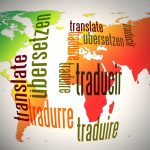The Role of a Consecutive Interpreter in Diplomatic Meetings
In the realm of diplomacy, successful communication is crucial for building relationships, resolving conflicts, and advancing international cooperation. This is where the role of a consecutive interpreter comes into play. In diplomatic meetings, a consecutive interpreter acts as the bridge between different language speakers, facilitating communication and ensuring nothing gets lost in translation. They have a responsibility to accurately interpret and convey the messages exchanged, maintaining a neutral and impartial stance throughout the process.
A consecutive interpreter must possess a high level of linguistic skills and cultural knowledge to effectively bridge the gap between languages and cultures. They must have an extensive vocabulary, impeccable grammar, and a deep understanding of nuances and idiomatic expressions. This ensures that they can accurately interpret not only the words spoken but also the intended meaning behind them. Additionally, they must remain adaptable and quick-thinking, as they need to process information in one language and relay it seamlessly in another, often in high-pressure situations. The role of a consecutive interpreter is multi-faceted, demanding versatility, professionalism, and exceptional interpersonal skills to navigate the complexities of diplomatic meetings.
Understanding the Importance of High-Profile Diplomatic Meetings
High-profile diplomatic meetings play a crucial role in shaping international relations and fostering global cooperation. These meetings serve as platforms for high-ranking officials from different nations to come together, exchange ideas, negotiate agreements, and address pressing issues that have far-reaching implications. They provide an opportunity for leaders to build trust, enhance diplomatic ties, and establish common ground on matters of mutual interest. As such, the importance of high-profile diplomatic meetings cannot be overstated, as they have the potential to pave the way for the resolution of conflicts, the promotion of peace and stability, and the advancement of shared goals and objectives among nations.
The significance of these meetings lies not only in the topics discussed and decisions made but also in the symbolism they convey. High-profile diplomatic meetings often capture the attention of the global community, ensuring that key messages and policy stances are heard by a wide audience. They serve as platforms for heads of state to showcase their leadership skills, demonstrate diplomatic prowess, and assert their nation’s standing on the world stage. The outcomes of these meetings can have profound implications for domestic and international audiences alike, shaping public opinion, influencing foreign policy, and setting the course for future collaborations or confrontations between nations.
The Challenges Faced by Consecutive Interpreters in Diplomatic Settings
Consecutive interpreters play a crucial role in diplomatic settings, bridging the language gap between participants and facilitating effective communication. However, their job is not without challenges. One of the primary challenges faced by consecutive interpreters in diplomatic settings is the pressure to maintain accuracy and convey the intended meaning of the speaker’s words. With no room for errors or misinterpretations, the interpreters must possess exceptional linguistic skills and a deep understanding of both the source and target languages.
Apart from linguistic challenges, consecutive interpreters also face the difficulty of managing complex and technical terminology used in diplomatic discussions. Topics discussed during high-profile diplomatic meetings often involve intricate political, economic, and legal concepts that require specialized knowledge. Interpreters must invest significant time and effort in researching and familiarizing themselves with the relevant terminology to ensure accurate interpretation. In addition, cultural sensitivity is crucial to navigate diplomatic encounters successfully, as interpreters must be aware of potential cultural nuances, customs, and sensitivities that may arise during the meetings. The ability to adapt and understand various cultural practices enables interpreters to provide accurate and culturally appropriate interpretations, further enhancing effective communication in diplomatic settings.
Strategies for Effective Communication in High-Pressure Diplomatic Meetings
To navigate the complexities of high-pressure diplomatic meetings, strategies for effective communication play a crucial role in ensuring successful outcomes. One such strategy is the use of clear and concise language. In diplomatic settings, where time is often limited and discussions can be intense, using straightforward and unambiguous language helps to convey messages accurately. By avoiding unnecessary jargon or complicated sentences, consecutive interpreters can facilitate smoother communication between parties, promoting understanding and reducing the likelihood of misinterpretation or confusion.
Another important strategy is active listening. In high-pressure diplomatic meetings, where emotions may run high and stakes are often significant, active listening allows interpreters to fully grasp the nuances and intentions behind speakers’ words. By maintaining focused attention, interpreters can pick up on subtle cues, such as tone of voice or body language, which can enhance their interpretation and ensure that the intended meaning is conveyed accurately. Active listening also demonstrates respect and attentiveness, fostering a positive rapport between all parties involved in the diplomatic meeting.
Cultural Sensitivity and its Significance for Consecutive Interpreters
Cultural sensitivity is a vital aspect of the consecutive interpreter’s role in diplomatic meetings. In such high-stakes settings, it is crucial for interpreters to understand and respect the nuances of different cultures. By being culturally sensitive, interpreters can bridge the gap between language and cultural barriers, ensuring effective communication between diplomatic parties.
One significant reason why cultural sensitivity is essential for consecutive interpreters is that it helps them accurately convey the intended meaning of the speaker. Cultural differences can greatly impact the expression and interpretation of ideas. By understanding the cultural context, interpreters can ensure that their translations capture the intended message, including any cultural nuances, idioms, or metaphors that may otherwise be lost in translation. This level of accuracy is instrumental in maintaining the integrity and effectiveness of diplomatic communications. Additionally, cultural sensitivity allows consecutive interpreters to navigate potential misunderstandings, prevent unintended offense, and promote a respectful and harmonious environment during diplomatic meetings.
The Art of Active Listening: Essential Skills for Consecutive Interpreters
Active listening is an essential skill that consecutive interpreters must master in order to effectively convey the message between two languages in diplomatic meetings. It goes beyond just hearing the words spoken; it requires full engagement and concentration to understand the speaker’s intentions, emotions, and cultural nuances. By actively listening, interpreters can accurately interpret the speaker’s message, capturing not only the words but also the speaker’s tone, emphasis, and underlying meaning. This skill allows interpreters to bridge the communication gap between parties and facilitate smooth and meaningful dialogue in high-pressure diplomatic settings.
One aspect of active listening is maintaining focus and concentration throughout the entire conversation. Interpreters need to resist the temptation to let their minds wander or get distracted by external factors. They must remain fully present, absorbing every word and non-verbal cue from the speaker in order to accurately interpret and deliver the message to the other party. Additionally, interpreters need to practice empathy by putting themselves in the speaker’s shoes, understanding their perspective, and reflecting that understanding in their interpretation. This level of active engagement ensures that the message is conveyed in a way that fully captures the speaker’s intent and effectively communicates it to the other party.
Managing Confidentiality and Professionalism in Diplomatic Interpreting
Confidentiality and professionalism are paramount for consecutive interpreters in diplomatic settings. As trusted language mediators, they have access to sensitive information and must uphold strict confidentiality. It is essential for interpreters to maintain utmost professionalism, ensuring that they conduct themselves ethically and responsibly.
In the realm of diplomatic interpreting, confidentiality encompasses not only the information shared during meetings, but also extends to the relationships and interactions they observe. Interpreters must be mindful not to disclose any confidential conversations, observations, or personal details of those involved. This level of discretion builds trust and allows diplomats to speak freely, knowing that their words will be accurately translated without compromising their confidentiality. Furthermore, interpreters should refrain from engaging in personal opinions or making impromptu comments during their interpretation, maintaining a neutral and unbiased position. By adhering to these principles, interpreters can uphold the professional standards expected in diplomatic interpreting settings.
Ethical Considerations for Consecutive Interpreters in Diplomatic Contexts
In diplomatic contexts, consecutive interpreters often find themselves facing numerous ethical considerations. These professionals play a crucial role in facilitating effective communication between parties with different languages and cultures. As impartial intermediaries, interpreters must maintain strict confidentiality and professionalism at all times, ensuring that sensitive information remains secure and that personal opinions do not influence the interpretation process.
Additionally, ethical consecutive interpreters recognize the importance of accuracy and neutrality in their work. They commit themselves to faithfully conveying the speaker’s message without adding or omitting any details. By choosing their words carefully, interpreters ensure that they remain unbiased and faithful to the task at hand. It is their duty to maintain the integrity of the communication process, allowing for an open and transparent exchange of ideas in diplomatic meetings.
Enhancing Language Proficiency for Consecutive Interpreters in Diplomatic Meetings
Language proficiency is a fundamental skill that consecutive interpreters must possess in order to excel in diplomatic meetings. Effective communication in these high-pressure settings requires interpreters to have a strong command of both the source language and the target language. This involves not only having a broad vocabulary, but also understanding the nuances and idiomatic expressions specific to each language. To enhance their language proficiency, interpreters often engage in continuous language learning and practice, aiming to stay updated with the latest vocabulary and linguistic developments.
One strategy for improving language proficiency is to immerse oneself in the culture and language of the countries involved in the diplomatic meetings. Interpreters can take language courses, read newspapers and literature in both languages, and watch movies or listen to podcasts to sharpen their language skills. By exposing themselves to the various dialects, accents, and cultural references, interpreters can become more attuned to the subtleties of the languages they work with. Additionally, having a deep understanding of the culture helps interpreters choose the appropriate words and phrases that accurately convey the intended message in both languages. Ultimately, enhancing language proficiency equips consecutive interpreters with the linguistic tools necessary to effectively bridge the communication gap between diplomats.
Best Practices for Consecutive Interpreters in High-Profile Diplomatic Settings
When operating as a consecutive interpreter in high-profile diplomatic settings, adhering to best practices is crucial to ensuring smooth and effective communication between parties. One of the primary guidelines for interpreters is to maintain a neutral and impersonal tone while conveying the speakers’ messages. This is essential to ensure that the interpretation remains accurate and unbiased, allowing for an objective understanding of the discussions.
Another important aspect of being a successful consecutive interpreter in high-profile diplomatic meetings is to display exceptional professionalism throughout the proceedings. This involves arriving well-prepared with background knowledge about the subject matter and familiarizing oneself with any relevant terminology or jargon. Maintaining confidentiality is also paramount, as interpreters are often privy to sensitive information and must exercise discretion at all times. By upholding these best practices, consecutive interpreters contribute significantly to the smooth functioning of high-profile diplomatic meetings, facilitating effective communication and engagement between participants.



